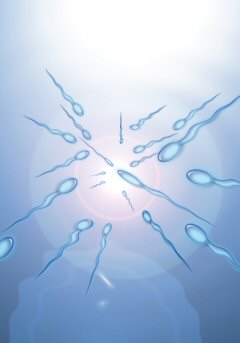

Home Page
The latest articles, features and news.


Read About...


Search Articles



Discussion Forums




|
| | |
|
22 June 2006
Sperm Quality Affected By Nitric Oxide Levels
by George Atkinson  Attendees at the annual conference of the European Society of Human Reproduction and Embryology were told by Iranian scientists that nitric oxide - a chemical that plays an essential role in many bodily functions - could damage sperm DNA at high levels. Nitric oxide levels play a crucial role in achieving erection and erectile dysfunction drugs work by temporarily boosting nitric oxide levels.
Attendees at the annual conference of the European Society of Human Reproduction and Embryology were told by Iranian scientists that nitric oxide - a chemical that plays an essential role in many bodily functions - could damage sperm DNA at high levels. Nitric oxide levels play a crucial role in achieving erection and erectile dysfunction drugs work by temporarily boosting nitric oxide levels. "In recent years, nitric oxide (NO) has been recognized as a molecule that plays an important role in regulating the biology and physiology of the reproductive system, and we know that it can affect human sperm functions, such as motility, viability and metabolism. At low concentrations it can have a positive effect on cells, but [it can have] a negative effect at high concentrations," explained Iranian embryologist, Dr Iraj Amiri. Amiri said he wanted to see if there were significantly higher concentrations of nitric oxide in the seminal plasma of infertile patients, compared to fertile males. The research team subsequently collected semen samples from 45 infertile patients and 70 fertile men and then measured levels of NO and tested the samples for DNA damage. "We found that the NO levels in the infertile men were, on average, twice as high as in the fertile men. This indicates that infertile men have higher levels of sperm DNA damage and NO concentration in their seminal plasma compared to fertile men, and that the sperm DNA damage may be caused by the NO," said Amiri. Amiri hastened to add that the infertile men may have had higher concentrations of NO because of genital tract disease and other factors - such as inflammation and infection - which can lead to NO over-production. There were no significant differences between the fertile and infertile men as to whether they lived in the country or in built-up, polluted areas, although Dr Amiri did not rule out air pollution as a factor. "Our next step is to identify the role of some environmental factors such as air pollution, jobs, disease and smoking on over-production of NO in infertile males. We also want to find a cut-off level at which NO changes from having a beneficial effect on sperm to having a negative affect," he said in conclusion. Based on material from the European Society for Human Reproduction and Embryology
|
|





